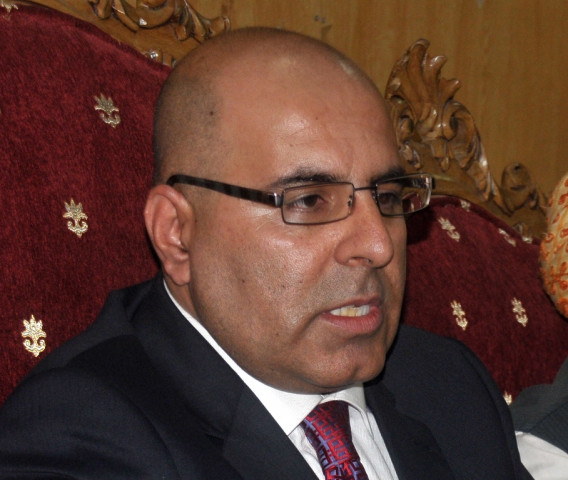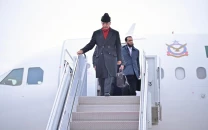Estranged ally: JUI-F bids adieu to govt but ‘open to talks’
Jan Achakzai cites differences over PPO, security policy and Taliban talks as reasons for split .

Until the deadlock is resolved with the PML-N, it will be difficult to continue to be a coalition partner in the government, Jan Achakzai said. PHOTO: EXPRESS/FILE
The relationship between the Pakistan Muslim League-Nawaz (PML-N) and Jamiat Ulema-e-Islam-Fazl (JUI-F) hit a stumbling block on Friday when ministers from the politico-religious party tendered their resignations in protest over the government’s policies.
JUI-F spokesperson Jan Achakzai confirmed the development and cited differences over the Internal Security Policy and Protection of Pakistan Ordinance as well as the course of peace talks with the Taliban as underlying reasons.
Information Minister Pervaiz Rashid, however, expressed hope that the relationship will be back on track. “Currently, both Nawaz Sharif and Maulana Fazlur Rehman are out of the country. I am hoping that the issue will be resolved when they return,” he said.
While the JUI-F maintains its resignation is in protest against the PPO and Taliban talks, government sources say it is the party’s disappointment over the allotment of ministries that has caused the split.
Until the deadlock is resolved with the PML-N, it will be difficult to continue to be a coalition partner in the government, Jan Achakzai said. He also explained that these issues formed the basis of the resignations tendered by lawmakers Maulana Ghafoor Haideri and Akram Khan Durrani.
He said the friction between the JUI-F and PML-N was built up over the last four months. “We are open for talks with PML-N to forge convergence on issues,” he added.

On April 10, a day after Maulana Fazl left for the United Kingdom, a meeting to resolve the problems with the PML-N was held in Peshawar with an aim to gather support from humanitarian organisations and lawmakers there who held similar views regarding the PPO.
“The grievances had deepened and although there was talk of moving out of the coalition, the government was still given one last chance,” a participant of the meeting told The Express Tribune. “Despite the fact that resignations were tendered there might still be a way out,” he added.
One JUI-F leader who requested anonymity said that the government’s decision to include madrassas in the security policy came as a big surprise. “It is very awkward when you are sitting on the treasury benches and you are unaware,” he said, adding that the party leaders remained silent on the occasion as the government was already involved in other issues that required national consensus.
While many within the party, including the JUI-F chief, thought he would be the broker of peace with the Taliban, Maulana Fazl’s aspiration remained a pipe dream.
Published in The Express Tribune, April 12th, 2014.



















COMMENTS
Comments are moderated and generally will be posted if they are on-topic and not abusive.
For more information, please see our Comments FAQ